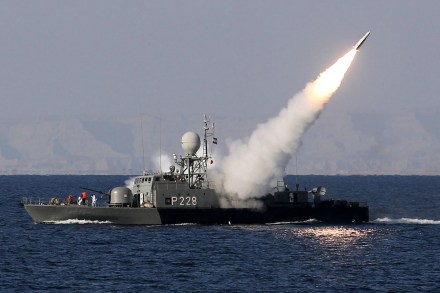Push off now, Press TV, and take your conspiracy theories with you
A week that began with an insane decision from the European Court of Human Rights has come to an end with a sensible decision from Ofcom. The Iranian government’s propaganda channel in London, Press TV, has just had its license to broadcast revoked. Insomniac Islamists will no longer be able to enjoy their weekly dose of programmes presented by the likes of Lauren Booth, Tariq Ramadan or Derek Conway. And of course they will now forever miss The Real Deal with George Galloway. On that show you could see such treats as Galloway interviewing ‘President’ Ahmadinejad. It is a wonderful interview, not least thanks to Galloway’s thoughtful attempt to lay out the terrain
















